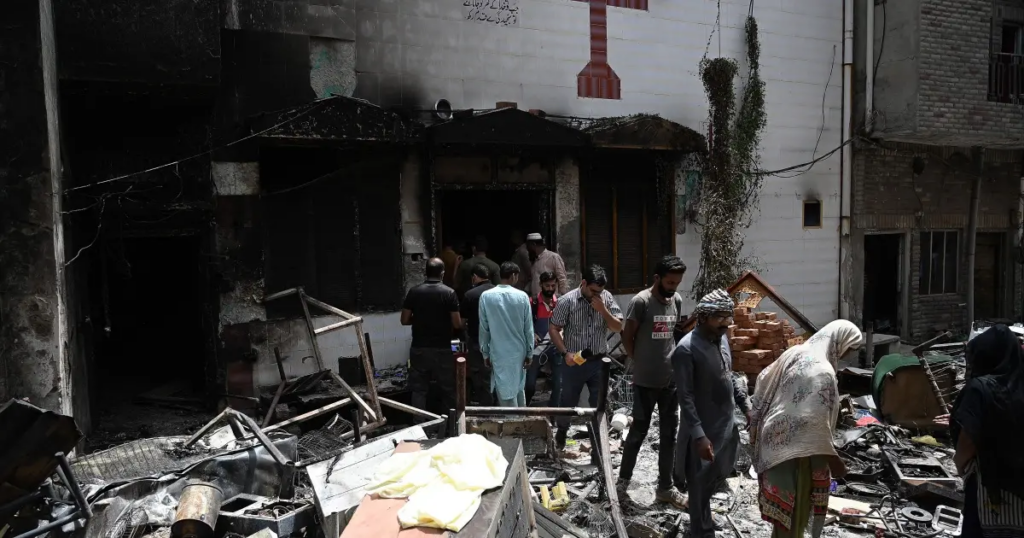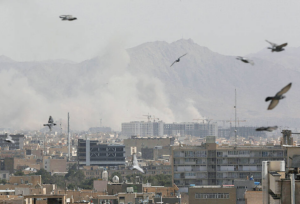
The federal government of Pakistan was ordered by one of the nation’s high courts to investigate the abuse of blasphemy laws which have disproportionately affected Pakistani Christians. The order occurred during a case involving multiple allegations of repeated abuse, as reported by Morning Star News.
The case, involving more than 100 individuals accused of blasphemy, arose in September 2024, when the families of these individuals petitioned to the Islamabad High Court and asserted that individuals such as lawyers and officers of the anti-blasphemy unit of the cybercrime section of the Federal Investigation Agency attempted to trap individuals into breaking blasphemy laws before bribing them for money in exchange for dropping legal action.
Forty-two hearings occurred until Justice Sardar Ejaz Isha Khan ordered the formation of an investigative commission to examine such abuse. The commission is to be formed within 30 days, and must complete the investigation within four months. However, the court is permitted to request an extension.
Since 1986, Pakistan’s blasphemy cases have sharply increased due to 1986 amendments that established blasphemy as a capital offence. Blasphemy under the law is “derogatory remarks, etc, in respect of the Holy Prophet [Muhammad] either spoken or written, or by visible representation, or by any imputation, innuendo or insinuation, directly or indirectly shall be punished with death, or imprisonment for life, and shall also be liable to fine.”
According to the latest report conducted by the National Commission for Human Rights, blasphemy charges have increased during the October 2023 to July 2024 period, which includes Christians, Muslims, and followers of other religions.
Open Doors, a nonprofit advocating for persecuted Christians, has kept track of the persecution in Pakistan.
“Pakistan’s notorious blasphemy laws are often used to target minority groups,” Open Doors reports, “but Christians are disproportionately affected. Indeed, roughly a quarter of all blasphemy accusations target Christians, who make up just 1.8 per cent of the population.”
One tactic that influenced the increase of blasphemy cases is luring men into engaging in internet pornography, since Pakistan bans pornography. While the officials have sought to trap men through online tactics, other officials have targeted minority groups such as the Christian community by accusing them of blasphemy.
As of January, 20 Christians are behind bars in Pakistan for blasphemy, with sentences totaling 134 years, according to International Christian Concern.
One example involving a blasphemy charge occurred in 2021 when Raja Warris, a Christian leader, was charged after sharing a Facebook post that criticized Islam. Another case, which occurred in 2023, involved a Christian widow and a Muslim gardener, who burned scraps of waste paper and garbage per the request of a secondary school. After pieces of the Quran were discovered in the burn rubble, both individuals, although illiterate, were charged with blasphemy. The same year, two other Christians were charged with blasphemy, triggering a series of attacks against Christian communities. Not only was a Christian graveyard pillaged but at least 21 churches and hundreds of houses were burned down.
The National Commission for Human Rights report recorded that between January and July 2024, 767 blasphemy cases occurred while 2023 saw 213. In 2020, only 11 cases were reported on, and in 2021, only nine were reported on.
After the hearing, Imaan Mazari-Hazar, an attorney who represented some of the arrested individuals’ families, called the order a “huge ray of hope.”
Hadi Ali Chattha, a petitioning lawyer, also spoke publicly about the case.
“The lawyers of the ‘blasphemy business group’ tried their best to subvert the proceedings of the case,” Chattha said, “but we appreciate the judge for handling this sensitive matter wisely.”
According to Open Doors’ 2025 World Watch List, Pakistan ranks as the eighth most difficult country in which to be a Christian.








